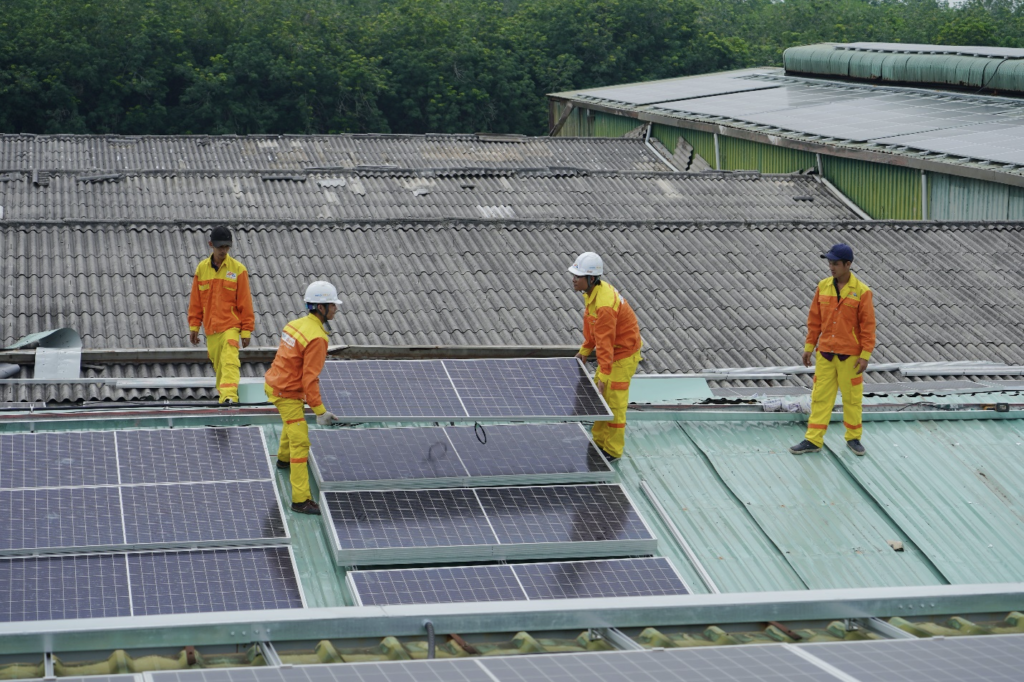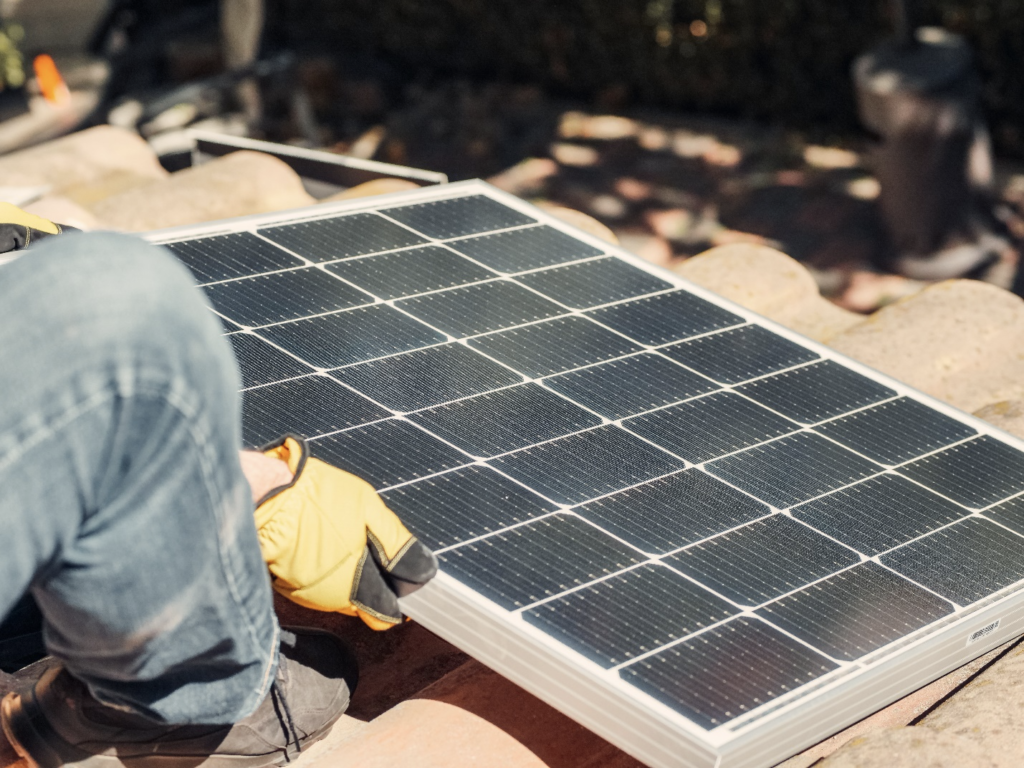Nigeria’s energy sector has faced various difficulties in recent years, including insufficient electricity generation, inefficient distribution systems, and an excessive dependence on fossil fuels. A significant untapped potential for renewable energy, particularly solar electricity, exists despite these difficulties. Solar energy is a viable option as Nigeria looks to make the shift to a greener and more sustainable energy future.
Until Nigeria completely implements the Energy Transition Plan (ETP) throughout the board, it may have persistent power difficulties. Former Vice President Yemi Osinbajo recently stated that in order for Nigeria to achieve energy independence by 2060, the country must generate 5,300 megawatts (MW) of electricity annually, primarily from alternative sources. But, beyond simply discussing an adequate energy future, it is time for all hands to be on deck for the responsible implementation of the energy transition agenda and its possibilities.
Nigeria, Africa’s most populated country, has high energy consumption. However, its capacity for electricity generation is grossly inadequate, leading in frequent power outages and limited access to electricity for a sizeable percentage of the population. Furthermore, for both electricity generation and export earnings, the country is significantly reliant on fossil resources, mainly oil and gas. This reliance on nonrenewable energy sources not only adds to greenhouse gas emissions, but also subjects the country to the instability of global energy markets.

Solar power has numerous advantages that make it an attractive choice for Nigeria’s green energy transition. To begin with, solar energy is renewable and available in Nigeria, as the country receives 6 to 7 hours of sunlight each day on average throughout the year. This makes it a suitable substitute for finite fossil fuels that contribute to environmental damage. Furthermore, because solar electricity is decentralised, it enables off-grid and mini-grid solutions to reach isolated locations with restricted connection to the national grid.
Furthermore, solar energy is becoming more affordable. The falling cost of solar panels, technological breakthroughs, and economies of scale have made solar energy more inexpensive and competitive with traditional energy sources.
By embracing solar energy, Nigeria may lessen its dependency on expensive fossil fuel imports and redirect resources to other areas of growth.
Recognising solar power’s enormous potential, the Nigerian government has launched a number of initiatives and legislation to encourage its use. The Rural Electrification Agency (REA) established the Rural Electrification Fund (REF), which offers loans and subsidies for renewable energy projects like as solar power. The Nigerian Electricity Regulatory Commission (NERC) has also issued policies encouraging private sector participation in off-grid solar installations.
In addition to government efforts, various international organisations, such as the World Bank and the United Nations Development Programme (UNDP), have supported Nigeria in its solar power endeavours. These partnerships have resulted in the implementation of solar energy projects in rural communities, schools, and healthcare facilities, improving access to electricity and enhancing livelihoods.

Nigeria’s adoption of solar energy has a large socioeconomic and environmental impact. From a socioeconomic standpoint, solar energy projects generate employment opportunities, particularly in solar panel production, installation, and maintenance. This promotes inclusive growth by boosting local economies and lowering unemployment rates. Solar energy also makes it easier for people to obtain electricity in remote locations, allowing them to carry out useful activities like running small companies, researching, and getting information.
Solar energy provides a clean and sustainable energy source for the environment. Solar energy helps Nigeria meet its Paris Agreement objectives by replacing fossil fuels and lowering greenhouse gas emissions. Additionally, the production of solar energy does not create any hazardous air pollution or noise, which enhances public health and quality of life.
Solar energy has bright future potential in Nigeria’s shift to green energy. Solar energy has the potential to be a large component of Nigeria’s energy mix if favourable legislation, greater investment, and technology improvements are implemented. To maximise its influence, however, a number of factors must be taken into account.
The first difficulty is that solar energy is inconsistent. Nigeria gets plenty of sunlight, yet there are still times when it’s gloomy and dark at night. In order to get around this problem, solar power systems can be equipped with energy storage devices like batteries that can be used to store extra energy produced during peak sun hours for use later on when there is little or no sunshine. A regular and dependable power supply from solar energy is only possible with the development of effective and affordable storage technologies.
Second, in order to have a substantial impact, solar power installations must be scalable. Although smaller-scale solar systems have been effective in supplying rural populations with electricity, larger-scale utility solar projects are required to address the rising energy needs of urban regions. This calls for securing funding from the private sector and putting in place supportive laws and policies that promote the construction of utility-scale solar power plants.
For an inclusive energy transition, it is also crucial to guarantee that solar electricity is affordable and available to all societal groups. Solar energy is now more readily accessible to both homes and businesses because to a sharp decline in the price of solar panels and related equipment. However, further lowering upfront costs and making solar power accessible to low-income homes and small businesses can be achieved with the help of other initiatives, such as financial incentives, subsidies, and creative financing structures.

Developing local capacity and experience in solar power manufacturing, installation, and maintenance is also essential for sustainable development. Investing in educational programs and training programs that provide people the knowledge and abilities to work in the solar energy sector would not only open up job opportunities but also encourage local ownership and advance sustainability over the long run.
Additionally, promoting research and development in solar power technologies that are specifically suited to Nigeria’s particular environmental challenges can result in breakthroughs that enhance energy production and efficiency. This entails researching hybrid solar systems that combine solar energy with other renewable energy sources, such as wind or biomass, and utilising smart grid technology for effective solar energy management and distribution.
With its ability to provide a renewable, decentralised, and economical answer to the nation’s energy problems, solar power has enormous potential for Nigeria’s green energy transition. Nigeria may utilise its plentiful solar resources to increase access to power, create jobs, and lessen its reliance on fossil fuels by enacting supporting legislation, forming public-private partnerships, and making investments in research and development.
However, for solar power to have the greatest impact in Nigeria, it is imperative to address the intermittent nature of solar electricity, scale up projects, ensure affordability and accessibility, develop local expertise, and encourage research and innovation. With concerted efforts and a clear vision, Nigeria can pave the way for a sustainable and green energy future, improving the lives of its citizens and contributing to global efforts in mitigating climate change.
Sources




